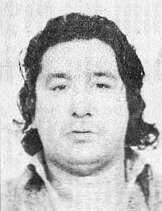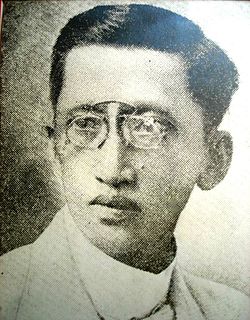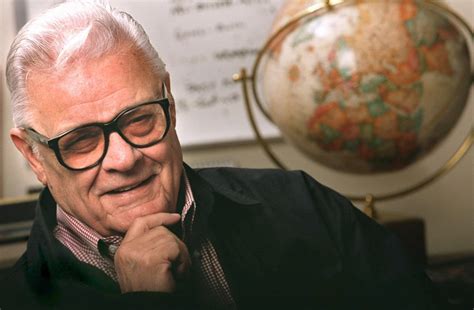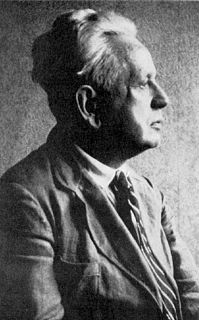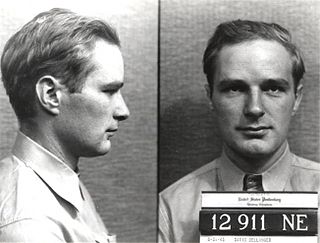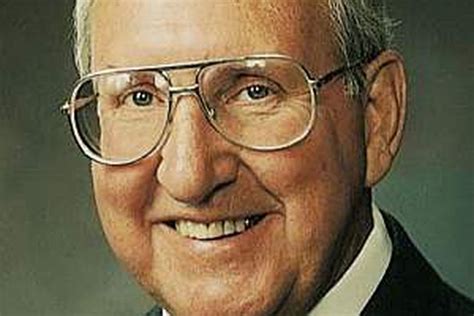A Quote by Thomas Sowell
No individual and no generation has had enough personal experience to ignore the vast experience of the human race that is called history. Yet most of our schools and colleges today pay little attention to history. And many of our current policies repeat mistakes that were made, time and again, in the past with disastrous results.
Related Quotes
Our world is not an optimal place, fine tuned by omnipotent forces of selection. It is a quirky mass of imperfections, working well enough (often admirably); a jury-rigged set of adaptations built of curious parts made available by past histories in different contexts. A world optimally adapted to current environments is a world without history, and a world without history might have been created as we find it. History matters; it confounds perfection and proves that current life transformed its own past.
Today’s events are tomorrow’s history, yet events seen by the naked eye lack the depth and breadth of human struggles, triumphs and suffering. Writing history is writing the soul of the past… so that the present generation may learn from past mistakes, be inspired by their ancestor’s sacrifices, and take responsibility for the future.
I realized that most white Americans knew very little about our history and our struggle, and were having difficulty understanding the basis for our agitation and our resistance and our complaints. I also discovered that while black Americans had a sense of the beauty and tragedy of the journey from the time of slavery until now, we were not rooted in the specifics. I thought one way to familiarize people with that history would be through the voices of the great folk artists.
Experience was of no ethical value. It was merely the name men gave to their mistakes. Moralists had, as a rule, regarded it as a mode of warning, had claimed for it a certain ethical efficacy in the formation of character, had praised it as something that taught us what to follow and showed us what to avoid. But there was no motive power in experience. It was as little of an active cause as conscience itself. All that it really demonstrated was that our future would be the same as our past, and that the sin we had done once, and with loathing, we would do many times, and with joy.
The totality of our so-called knowledge or beliefs, from the most casual matters of geography and history to the profoundest laws of atomic physics or even of pure mathematics and logic, is a man-made fabric which impinges on experience only along the edges. Or, to change the figure, total science is like a field of force whose boundary conditions are experience.
This comes from Mike Gonzalez at the Daily Signal: [ Howard] Zinn's history "set the stage for the grievance mongering that passes for history classes today, and is still widely used. It has sold over 2 million copies since it was first published in 1980 and continues to sell over 100,000 copies a year because it is required reading at many of our high schools and colleges. That's a lot of young minds."
We are in a very critical and sensitive time in this nation. We need our president to sit down with folks who have a personal experience, a deep connection to the horror and the pain of this country`s provocative racial history. If the president wants to have a better understanding and appreciation for what he should do next, he needs to hear something from folks who have gone through this painful history. Without that personal connection to the painful past, it will be hard for him to regain that moral authority from my perspective.
In prison, the gloves were off, the comforting rhetoric and rationalization were absent. To use a phrase from Plato, I saw the laws of our society 'writ large' - its flagrant inequalities of opportunity and disastrous results, its contempt for vast categories of our fellow human beings, its reliance on institutional violence.
It is not difficult to understand why the great God of heaven has reserved these special spirits for the final work of the kingdom prior to his millennial reign.... This generation will face trials and troubles that will exceed those of their pioneer forebears. Our generation has had periods of some respite from the foe. The future generation will have little or none....This is a chosen generation.... I believe today's [Church youth] will lead the youth of the world through the most trying time in history.

